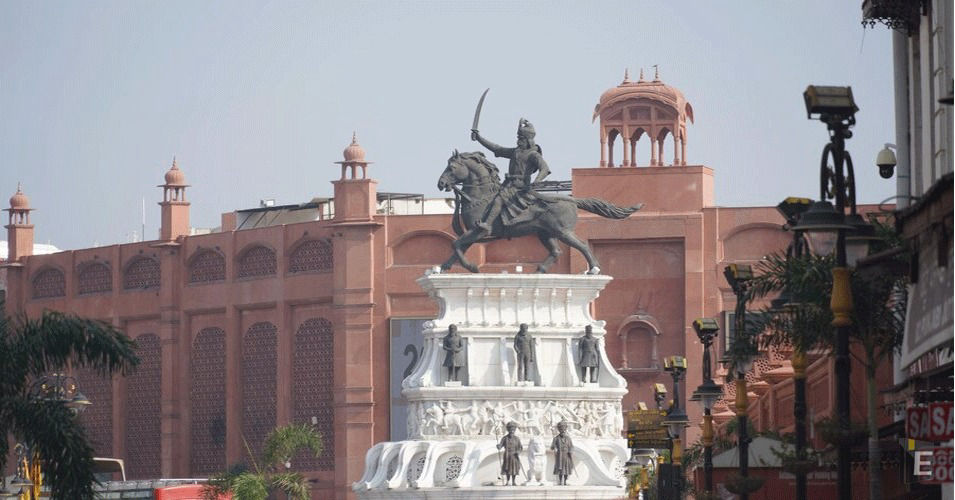World History GK Questions and Answers

India became a member of the United Nations in_____.
(A) 1963
(B) 1960
(C) 1951
(D) 1945
Correct Answer : D
Explanation :
India became a member of the United Nations (UN) on October 30, 1945, shortly after gaining independence from British rule. As one of the founding members of the UN, India has been actively involved in international diplomacy and has contributed to various UN initiatives and peacekeeping missions over the years.
In which year did the Partition of Bengal take place?
(A) 1910
(B) 1902
(C) 1903
(D) 1905
Correct Answer : D
Explanation :
The Partition of Bengal occurred in 1905 when the British colonial administration decided to divide the province of Bengal in British India. The primary stated reason was administrative efficiency, but it had significant political implications. The partition led to widespread protests and opposition from various communities, particularly due to concerns about communal tensions and political motivations. In response to the widespread protests, the British government annulled the partition in 1911 and reorganized Bengal. The event had lasting effects on the political consciousness of the region and contributed to the development of political movements in India.
Mount Everest is named after -
(A) The King of England
(B) The First climber of the peak
(C) A Surveyor General of India
(D) The Viceroy of India
Correct Answer : C
Explanation :
Mount Everest, the highest peak in the world, is named after Sir George Everest, a Welsh geographer and surveyor general of India in the 19th century. Although Sir George Everest himself objected to having the mountain named after him, the proposal was accepted, and the mountain retained the name Everest. The naming was done by the Royal Geographical Society in 1865 to honor his contributions to the Great Trigonometrical Survey of India, which played a significant role in mapping the subcontinent.
Overuse of resource is called “Tragedy of Commons”. It was propounded by:
(A) Adolph Wagner
(B) Seligman
(C) Garett Hardin
(D) A.P Lerner
Correct Answer : C
Explanation :
The "Tragedy of the Commons" is a concept introduced by Garrett Hardin in a famous 1968 essay. It describes a situation where individuals, acting in their self-interest, deplete shared resources, leading to the detriment of the overall community. The term "commons" refers to resources that are accessible to everyone, and the tragedy occurs when individuals, motivated by personal gain, exploit these resources excessively, leading to their depletion or degradation. Hardin's work highlights the challenges of managing common resources and the need for collective action or regulatory measures to prevent the tragedy from occurring. This concept has been widely applied to environmental issues and resource management.
The capital city reputed to be the oldest in the world is:
(A) Rome
(B) Damascus
(C) Alexandria
(D) Athens
Correct Answer : B
Explanation :
Syria's capital, Damascus, is the oldest capital in existence. It is the fourth holiest city in Islam, according to some. Damascus was established in the third millennium B.C., making it one of the Middle East's oldest cities.
In which year did the German Christian missionaries reach Ranchi?
(A) 1851 A.D.
(B) 1857 A.D.
(C) 1845 A.D.
(D) 1832 A.D.
Correct Answer : C
Explanation :
In 1845 A.D., German Christian missionaries arrived in Ranchi. These missionaries played a significant role in the establishment and development of Christian missions in the region. Their efforts contributed to the growth of Christianity in Ranchi and the surrounding areas, impacting the local communities and cultural landscape.
Whose teaching inspired the French Revolution?
(A) Hegal
(B) Plato
(C) Locke
(D) Rousseau
Correct Answer : D
Explanation :
Jean-Jacques Rousseau, an Enlightenment philosopher, political theorist, and writer, had a profound influence on the intellectual climate leading up to the French Revolution. His ideas, particularly those expressed in works like "The Social Contract" and "Emile," emphasized the concepts of popular sovereignty, equality, and the general will. Rousseau's emphasis on individual rights, democratic principles, and the idea that government should be based on the will of the people contributed to the ideological foundation that inspired the leaders and thinkers of the French Revolution in the late 18th century.
People in all the following countries had to be resettled after the 1986 Chornobyl nuclear disaster, except
(A) Kazakhstan
(B) Belarus
(C) Russia
(D) Ukraine
Correct Answer : A
Which of these countries got Independence from United Kingdom?
(A) Uzbekistan
(B) Pakistan
(C) Venezuela
(D) South Korea
Correct Answer : B
Before its Independence, Bangladesh was part of ___________.
(A) India
(B) China
(C) Pakistan
(D) United Kingdom
Correct Answer : C



